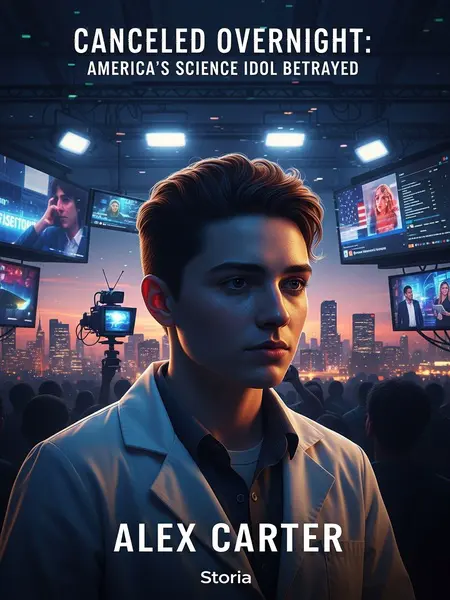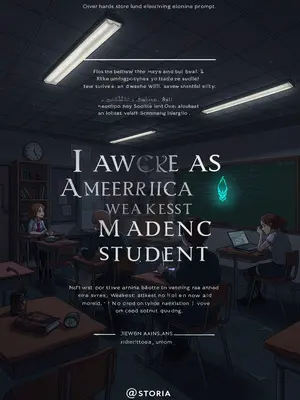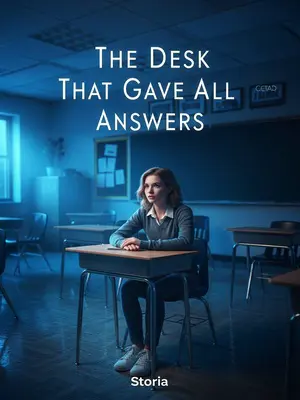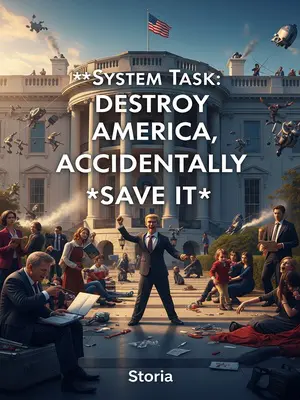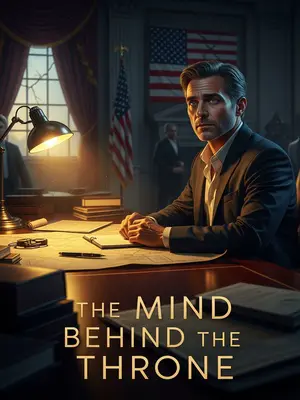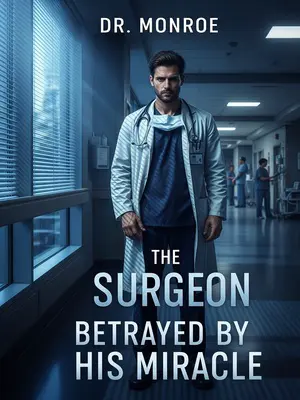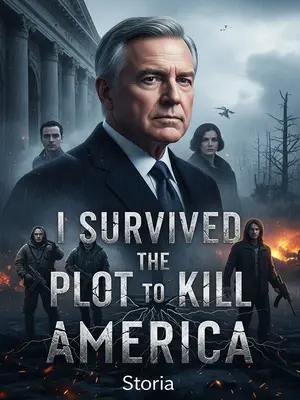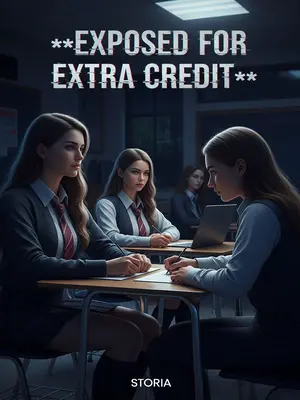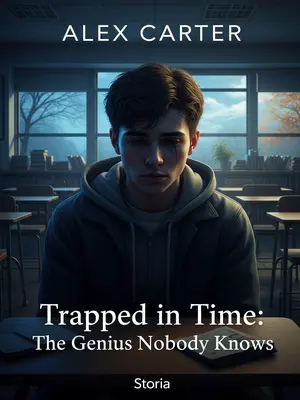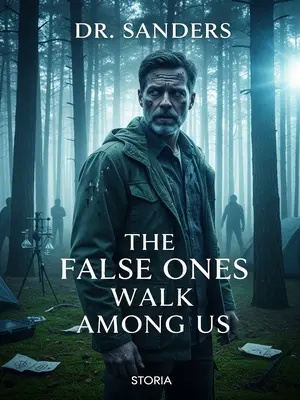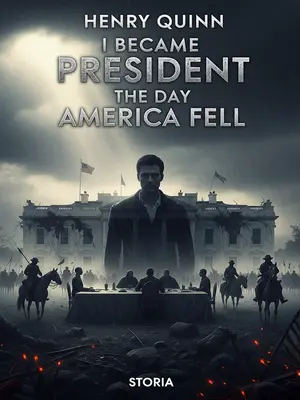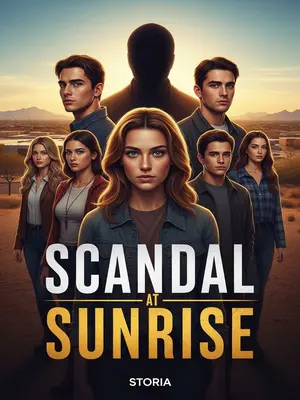Chapter 1: The Sudden Ban
He was once America’s most popular science content creator, with a single video racking up over 100 million views. On any given night, you might hear his voice echoing from a living room TV or see his face flash by on someone’s phone in a crowded subway car.
His face and voice became instantly recognizable in households across the country—he was that guy you saw on late-night talk shows, the one your mom tagged you in on Facebook, thinking you’d finally understand quantum physics, the guy teachers played in classrooms when the lesson needed a little spark.
Major media outlets featured him, and government agencies sought his collaboration. He even cracked up Jimmy Fallon with a live demo of his infamous Diet Coke volcano.
You’d catch glimpses of him being interviewed on NPR or quoted in The New York Times, and even NASA and the CDC reached out, hoping to tap his knack for breaking down complex ideas. In coffee shops from Seattle to Atlanta, people could be overheard talking about his latest viral video. It felt like he was everywhere.
Yet, just as his career reached its peak, he was suddenly deplatformed overnight—wiped from YouTube, Twitter, TikTok, everywhere.
The announcement felt like a punch to the gut for his fans—a sudden, harsh end that nobody saw coming. One high schooler in Ohio posted, “It’s like someone erased my favorite teacher from the planet.” Rumors started swirling within hours, spreading through Discord servers and Reddit threads like wildfire. Discord servers exploded: “Is this a hack?” someone typed. “No way, right?” came the reply. Everyone had a theory, but nobody knew for sure.
Some say that by then, he had already become a pawn of foreign interests.
Whispers of foreign influence rippled through the online rumor mill. Some accused him of selling out, others thought it was just internet paranoia. But as the story unfolded, the sense of betrayal stung all the more.
July 14, 2021—a day that broke the hearts of countless science enthusiasts.
For science fans across the country, it felt like a collective heartbreak, the kind that makes you check your phone over and over, hoping it’s just a bad dream.
On this day, the renowned science communicator "BrightMind" was abruptly deplatformed overnight—wiped from YouTube, Twitter, TikTok, everywhere.
No warning, no explanation—just gone. One moment, new uploads and quirky comments filled their feeds, and the next, every channel, every post, every tweet, vanished like it never existed.
The news hit like a boulder thrown into a calm lake, sending shockwaves everywhere.
Discord servers exploded, Twitter trended with frantic hashtags, and friends texted each other in disbelief. The news cycle latched on fast—"America’s Science Star Silenced Overnight." In libraries, college lounges, and suburban living rooms, people could only shake their heads.
Fans of "BrightMind" were stunned, deeply unsettled, hardly able to believe their eyes.
Many reloaded the YouTube app over and over, thinking maybe it was just a glitch. Kids who’d grown up with the videos stared at their blank subscriptions in disbelief. The sense of loss hung heavy, like a fog that wouldn’t lift.
"BrightMind" had called itself the "encyclopedia of modern life."
To many, it really was—a go-to for weird questions, science fair projects, or just killing time after school. The brand became a household name, like Bill Nye meets BuzzFeed for the TikTok generation.
For more than three years, they produced around 200 short science videos.
Each one was a bite-sized trip into the fascinating, the bizarre, the essential. They covered everything from gravity to garbage, never losing that signature mix of humor and clarity.
From "How to Be a Sensible Streetlight" and "How to Dispatch Trains for 330 Million People" to "How Atomic Bombs Are Made—And Why You Can’t Just Build One in Your Garage" and "Why Is Counterfeiting Currency So Difficult."
Titles ranged from playful to provocative—sometimes raising eyebrows, sometimes sparking debates at the dinner table. Friends would tag each other: “Dude, you gotta see this!”
In just a few minutes, they could make obscure knowledge accessible and clear to the public.
People who’d never cared about physics or economics suddenly found themselves captivated. Even tough subjects felt approachable, like your favorite teacher was chatting with you over pizza.
The animation, the storyboarding, the explanations—they were simply irresistible.
With slick graphics and quirky stick figures, every video felt like a cool lesson rather than a chore. The pacing was sharp, and the jokes always landed just right.
Though their content focused on serious scientific knowledge, watching their videos was never dull.
You could binge-watch half a dozen in an evening and come away feeling smarter—and weirdly, kind of hopeful.
"BrightMind" reached its peak in 2020.
That year, the pandemic was raging, and people were gripped by anxiety.
With the world locked down, nerves frayed, and uncertainty everywhere, people turned to the internet for answers. It was a moment tailor-made for someone who could calm fears and explain the unexplainable.
At that critical moment, "BrightMind" stepped forward.
Right when everyone felt lost, they delivered the content people desperately needed—straight talk, facts, and a touch of humor to cut through the gloom.
They released a video titled "All About COVID-19."
The video dropped just as the country was reeling from bad news and rampant misinformation. People watched the COVID-19 video hunched over kitchen tables, the blue glow of their laptops lighting up anxious faces. Within hours, it shot up the trending charts, passed around by teachers, parents, and anyone desperate for some clarity.
This video was like a lifeline, answering all the pressing questions people had.
People shared it in group chats, Facebook feeds, even local news broadcasts. For many, it was the first clear explanation of what was going on and what to actually do.
From the origins of the virus to its transmission routes, from prevention measures to treatment options—the explanations were thorough and comprehensive.
It broke things down with the kind of step-by-step logic that made complex science feel…almost comforting. The video didn’t just throw facts at you—it told a story you could follow, in language that felt real.
This single video alone surpassed 100 million views.
It was the talk of the town—shared by everyone from soccer moms to scientists. People quoted facts from it at the grocery store and on Zoom calls. It became a touchstone in a chaotic year.
It brought "BrightMind" millions of new followers and earned them a spot among YouTube’s "Top 100 Creators" that year.
A meteoric rise, the kind you’d only expect from pop stars or pro athletes. Suddenly, “BrightMind” was part of the national conversation.
Alex Carter, the founder of "BrightMind," also made it onto that year’s Forbes 30 Under 30 list—a remarkable achievement.
Alex’s parents watched the Forbes 30 Under 30 segment with tears in their eyes, barely believing their son was now a household name. His photo grinned out from glossy magazines, his name buzzed in entrepreneurial circles. For a kid who started making videos in his parents’ basement, it was the stuff of dreams.
CNN even aired a special report, showering "BrightMind" with praise.
Cable news anchors called him “the next Bill Nye.” Twitter threads dissected his rise, and late-night hosts made quips about his viral genius. It was a full-blown media moment.
Many government agencies extended olive branches, hoping to collaborate with them.
Rumor had it that government health departments, NASA, and even the EPA reached out. He was invited to panels and Zoom roundtables, asked to weigh in on policy and science education alike.
At that time, Alex Carter stood at the pinnacle of his career, basking in glory.
It was the American dream on fast-forward—success, recognition, and influence. The future looked limitless.
The company kept expanding, boasting over a hundred employees—each an elite in their field.
Every department grew—scriptwriters, animators, legal, marketing. Offices buzzed with young energy, the whiteboards filled with big plans and wild ideas. The mood was electric.
Besides science videos, Alex Carter also launched physical products and interactive learning kits like "Drying Factory" and "Basic Operations."
Schools started buying up BrightMind-branded experiment kits. Parents snapped them up for summer break, and even libraries set up displays. It seemed like a natural next step: turning online magic into hands-on learning.
It seemed he was on track to build a vast knowledge empire.
Investors circled, and media speculated about the next big move. Would there be a BrightMind streaming platform? A documentary series? The sky was the limit.
The future of "BrightMind" looked dazzlingly bright.
To fans and the media, it seemed like nothing could go wrong. Success felt inevitable—until the cracks started to show.
But no one realized they were already dancing on the edge of a cliff—the good times were almost over.
In hindsight, the signs were there: small controversies, snide remarks online, whispers in industry circles. But at the time, no one really believed disaster could strike.
Just when everyone expected Alex Carter to keep forging ahead and achieve even greater things, disaster struck.
The collective mood shifted overnight. Fans woke up to confusion and a creeping sense of dread. What could have happened?
"BrightMind" vanished from public view, suddenly and without warning.
Social media accounts disappeared, videos went private, and the website was replaced with a bland “under maintenance” message. It was like someone had flipped a switch.
He was banned.
No explanation. No statement. Just digital silence—a void that no one could fill.
And all of this stemmed from a war of words.
The kind of internet spat that seemed trivial at first—until it blew up bigger than anyone could have imagined.
